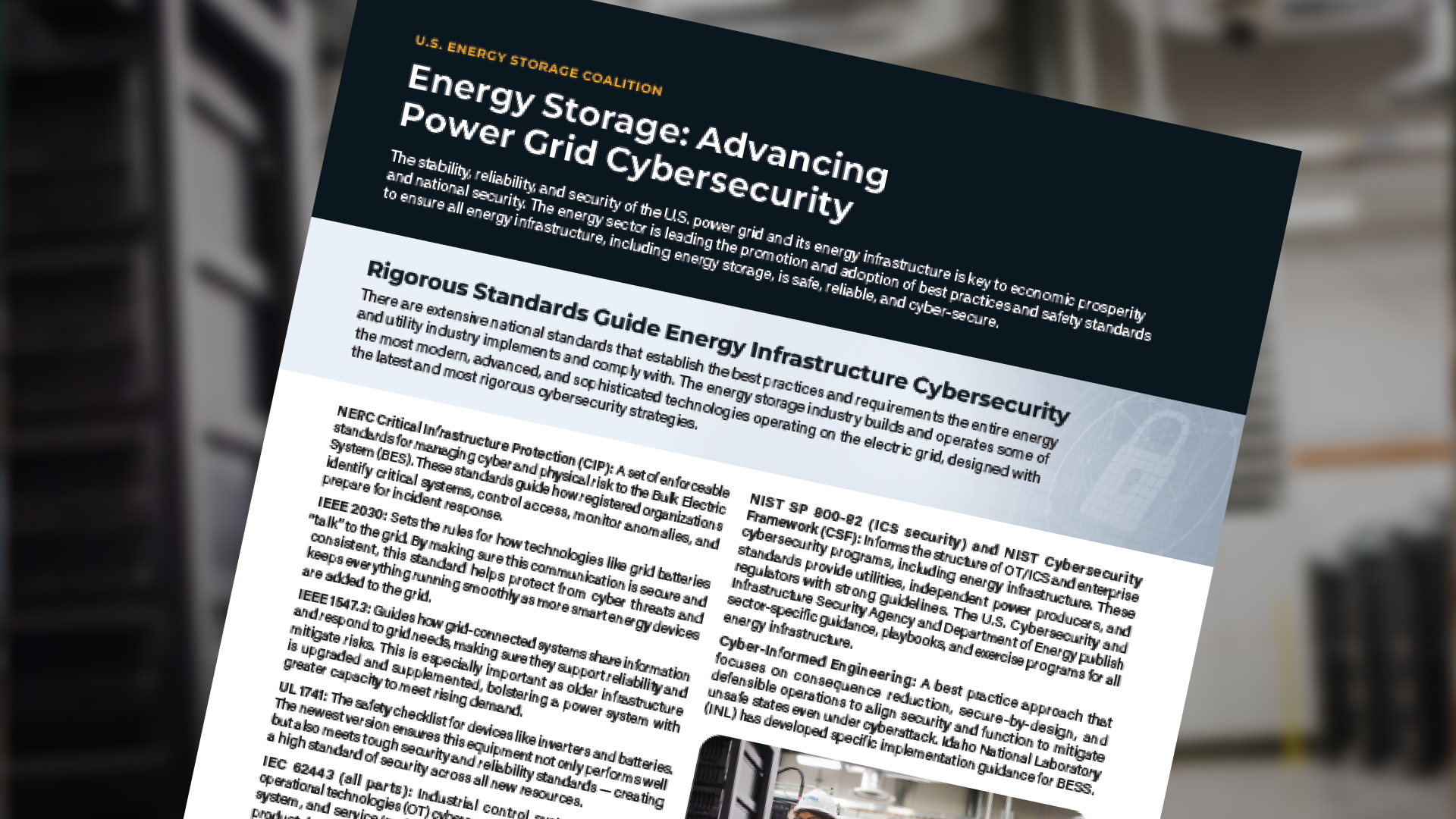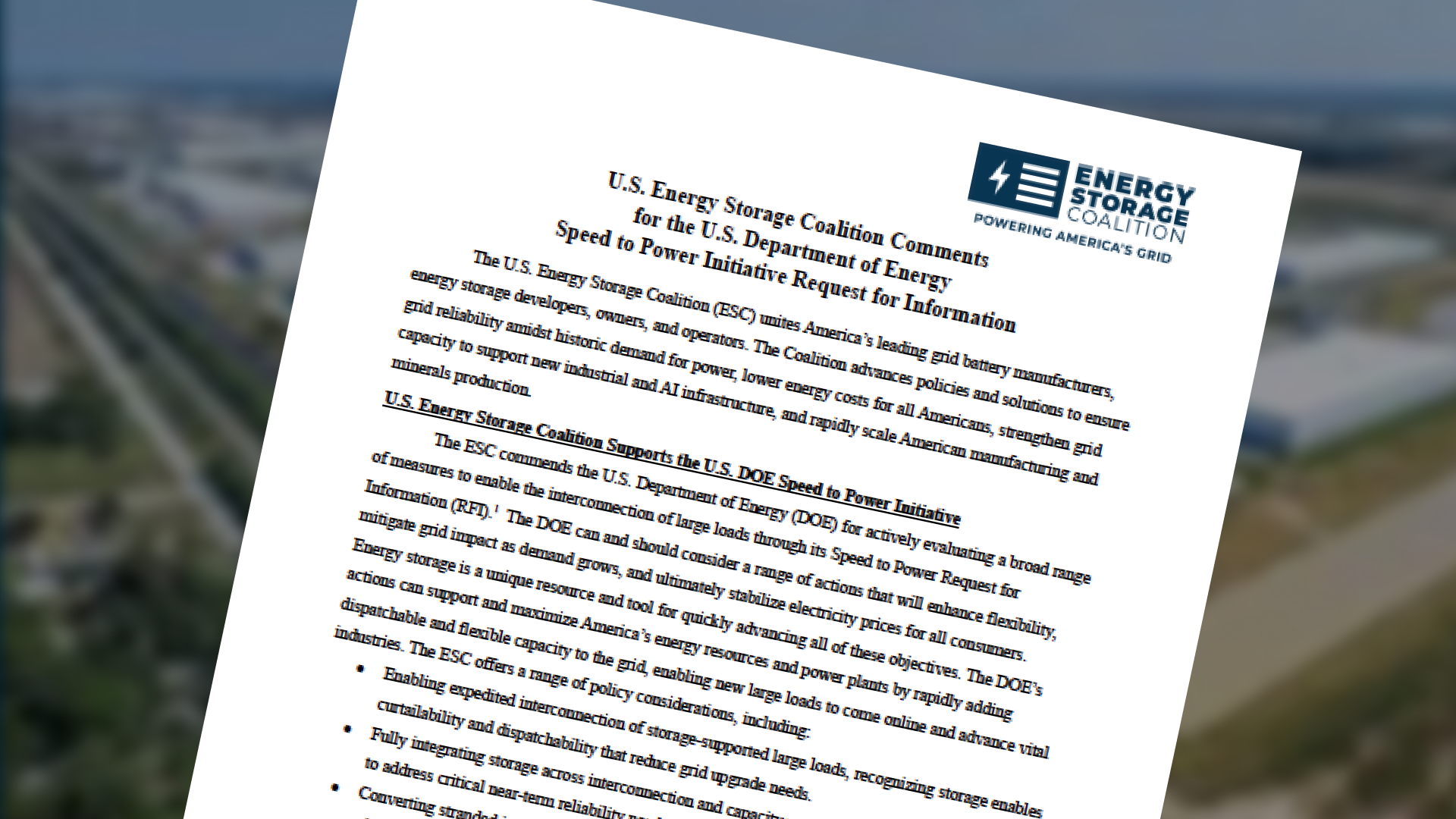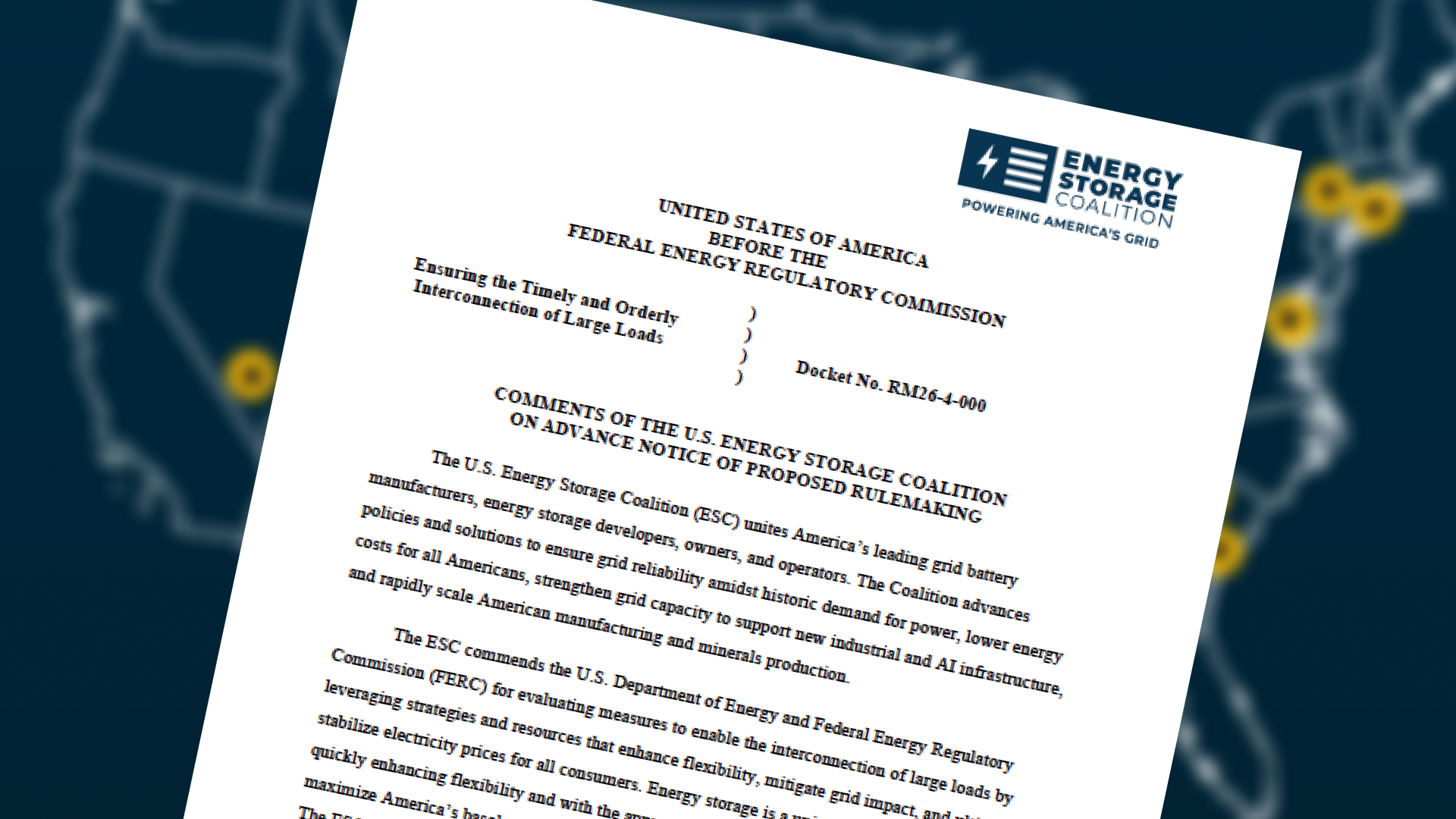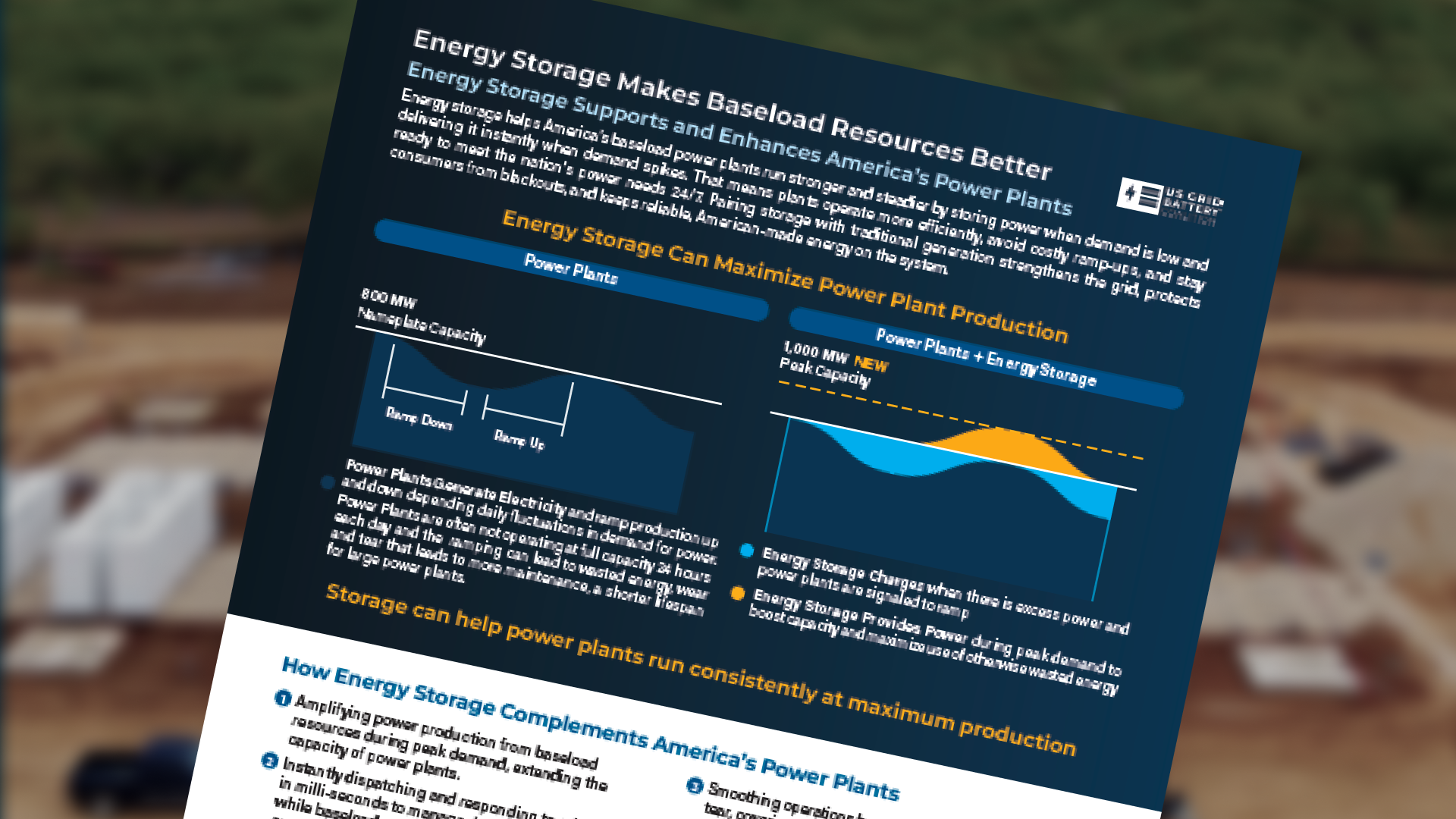
Energy storage
resources

Energy Storage: Advancing Power Grid Cybersecurity


Energy Storage Coalition Comment on the U.S. Department of Energy Speed to Power Initiative


Energy Storage Coalition Filing at FERC on the Large Load Interconnection ANOPR


Energy Storage Makes Baseload Resources Better


Energy Storage Powers Data Centers & Enables Maximum AI Compute Capacity


Fact Sheet: Outlook for Energy Storage in PJM


Outlook for Energy Storage in PJM


Energy Storage Coalition Fact Sheet


U.S. Energy Storage Industry to Invest $100 Billion in American Grid Batteries


Battery Energy Storage: Blueprint for Safety


Battery Energy Storage: Commitment to Safety & Reliability

More useful energy storage resources from across the web
Battery energy storage is enhancing resiliency and reliability, stabilizing grids, and marking a shift in how electricity is managed and generated.
This report reveals how battery storage in TX played a crucial role in maintaining grid reliability and reducing costs amid extreme weather conditions.
Nevada's largest solar battery storage system is set to launch, reducing customer costs and enhancing energy efficiency.
U.S. battery storage capacity is expected to expand to over 30 gigawatts, driven by growth in states like CA and TX due to increasing solar and wind energy deployments.
NFPA 855 is a leading national standard providing safety requirements for battery energy storage systems (BESS). This standard outlines the safety requirements for the installation and operation of stationary energy storage systems, encompassing various types of batteries.
UL9540 requirements provides a safety standard pertaining to technology and equipment which will be connected to the grid or standalone.
Establishes a target to, within the decade, reduce the cost of grid-scale energy storage by 90% for systems that deliver 10+ hours of duration.
Energy storage is the ability to capture energy at one time for use at a later time. Storage devices can save energy in many forms and convert them back to useful forms of energy like electricity.
NREL's energy storage research is funded by the U.S. Department of Energy and industry partnerships.
U.S. battery storage capacity has been growing since 2021 and could increase by 89% by the end of 2024 if developers bring all of the energy storage systems they have planned on line by their intended commercial operation dates.
This free resource explains the advantages and hazards of ESS, and how we can work together to help keep people and property safe.
.svg)